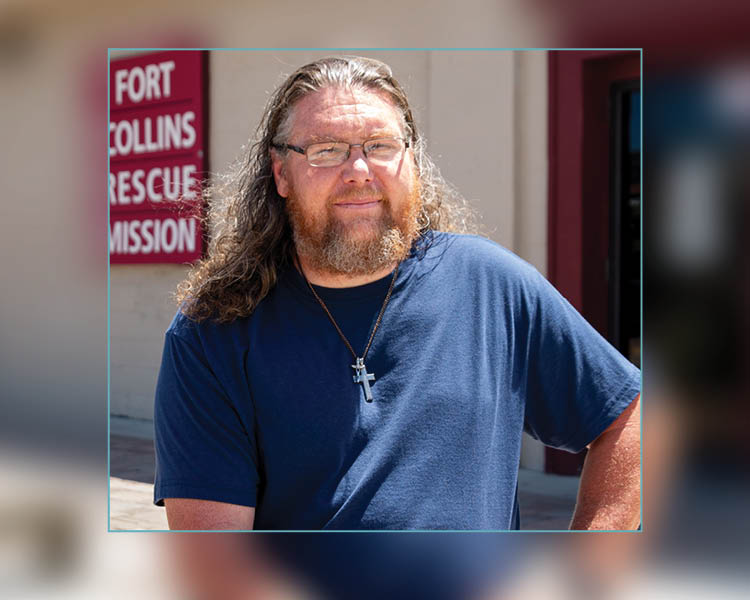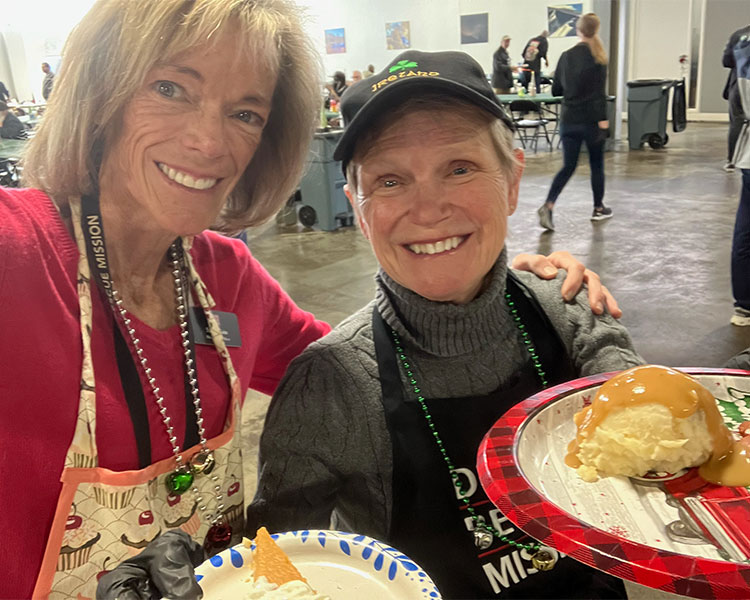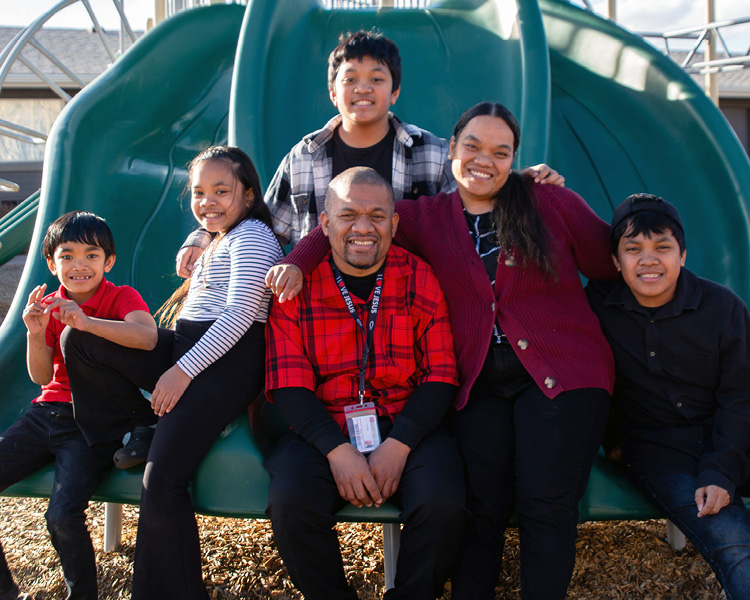One of the key requirements for health, strength and a sound mind is the same thing that makes them feel most at risk. This is the irony of sleep among our homeless neighbors.
Staying on the streets can expose them to hazards such as inclement weather and violence. Staying in shelters often means busy and crowded environments, which is why Denver Rescue Mission works hard to make our shelters as comfortable as possible for our guests.
Richard, a guest who has been staying at the Mission’s 48th Street Center for the past six months, said he prefers staying in a shelter over sleeping on the streets.
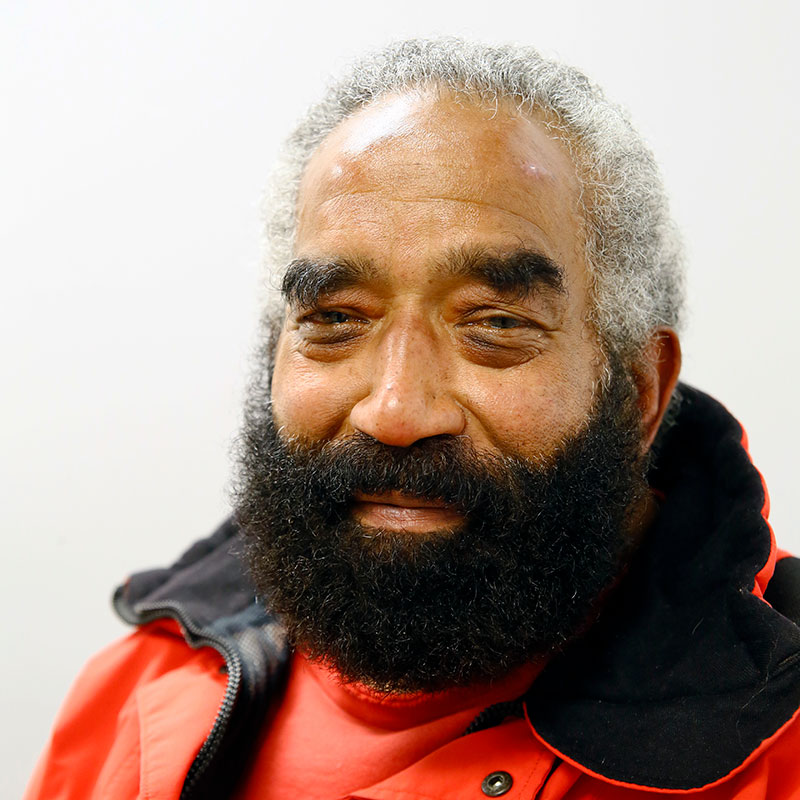
“Some of the guys who come here feel like they’ve been neglected, abandoned and kicked to the curb, but this [place] has made a tremendous difference.”
– Richard
“Unfortunately, being homeless and sleeping on the streets, you have to keep one eye open and one eye closed because you never know when crime’s going to surface,” he said. “You have to be alert and have your guard up.”
The 48th Street Center is a 48,000-square-foot warehouse that accommodates 486 guests and is operated by the Mission in partnership with the City of Denver. It is currently the largest overnight shelter in Denver, and the city provides bus transportation for guests to travel to and from the shelter each day.
Director for Homelessness Resolution at the Department of Housing Stability, Chris Conner, was a key influencer in the purchasing and development of the 48th Street Center.
He said that the city has been working closely with the Mission to provide shelter programming that is not just resolving immediate basic needs, but orienting guests to housing opportunities.
“The Mission has responded strongly to deeper coordinated strategies to assist people from the streets and has cultivated relationships with other providers to build successful resolutions,” he said.
Brandon Walker, emergency services shelter supervisor for the Mission, said that some nights at the shelter are quieter than others.
In his experience, the two main causes of sleep deprivation among guests at the 48th Street Center are substance abuse* and mental illness. Some guests struggle with night terrors. New guests struggle with the unfamiliar environment of being surrounded by a few hundred other people.
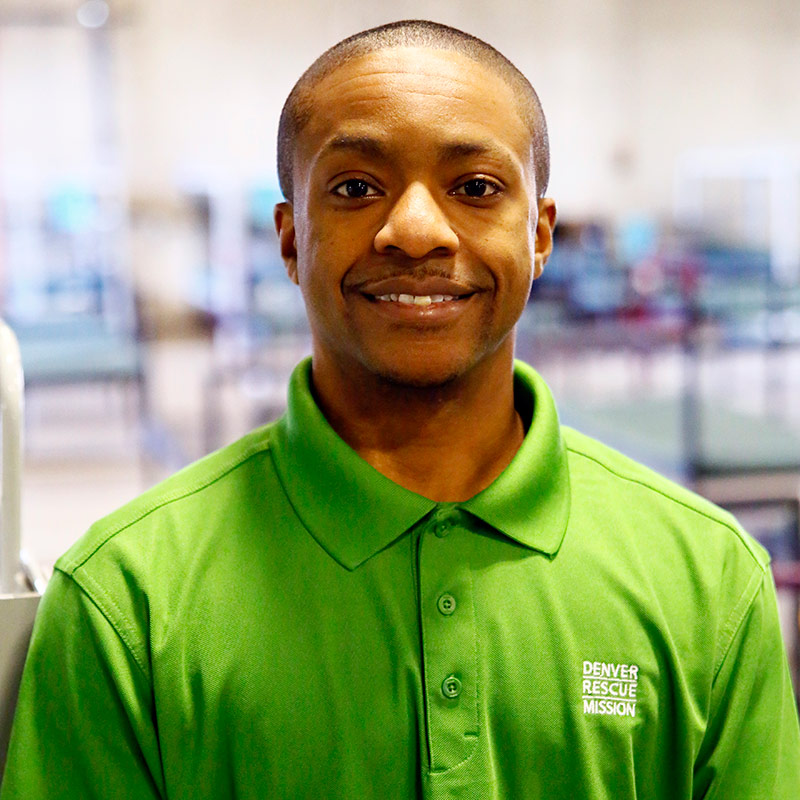
Meet Brandon
Brandon has been working night shifts at the Mission for about two years. During his shifts at our emergency shelters, he is responsible for ensuring that the facilities have everything they need to operate smoothly and provide clean, safe environments for guests.
According to Advanced Sleep Medicine Services, Inc., getting an inadequate amount of sleep can have a significant impact on mental health and can hinder emotional and cognitive regulation.
That’s why the work of the overnight staff at our shelters is crucial. Brandon and the other staff members frequently talk with guests who have trouble sleeping to hear how they can help. If guests need personal assistance, they often move them to quieter, less crowded areas. They hand out ear plugs to help with noise and extra sheets to cover their faces.
“Usually, when we just talk to them, that gets them to go lay back down,” Brandon said.
Richard said he wakes up periodically every couple of hours and is grateful for the caring staff members. “I get up and take a lap around the facility and go talk to the overnight crew,” he said.
Our staff awakens guests at 5:00 a.m. to start boarding the first of many buses that head to the Lawrence Street Community Center for breakfast. The guests return in the evenings to a cleaned facility and staff members who welcome them as they choose their beds for the evening. Guests can receive guidance from Peer Navigators, Mission staff members who have personally experienced homelessness and successfully transitioned into housing. They are available in the evenings to meet with guests and help them develop plans to exit the shelter system and transition back into society.
Through a grant awarded by the City of Denver, the 48th Street Center is getting lockers installed this year to keep our guests’ belongings safe.
“They’re making all kinds of changes for our benefit, and a lot of people are really pleased with that,” Richard said.
The team is also working on getting a coffee station and more activities to keep them occupied. “We don’t want them to feel like this is a permanent place, but while they’re here, we want to make it as comfortable as possible,” Brandon said.
The main goal? Break the cycle of homelessness. In 2019, the Mission was able to help 451 guests transition out of shelters through our services in Denver and Fort Collins. Additionally, 682 shelter guests joined one of the Mission’s long-term programs.
“If we have hundreds of guys and 20 of them make it out, to me, that’s a success because it lets us know we’re doing something right,” Brandon said. “That’s part of what keeps me going, because that’s my hope for all of them.”
REST FOR THE WEARY
With your support, the Mission is able to provide 1,428 beds at our facilities in Denver and Northern Colorado each night. Thank you for providing a warm place to sleep for those who desperately need the rest.
486
Beds at 48th Street Center
315
Beds at Lawrence Street Shelter
252
Beds at The Crossing
200
Beds at Holly Center
103
Beds at Fort Collins Rescue Mission
72
Beds at Harvest Farm
This winter, your support is providing warm beds to people who would otherwise sleep outside.
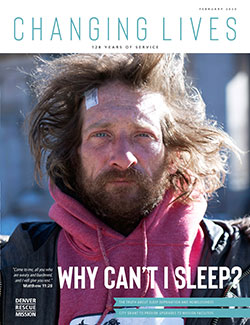
READ THE FULL NEWSLETTER
- Spread the Warmth
- 3 Secrets for a fulfilling life
- Beds at the Mission
- Why DRM Matters
- Core Strategies




